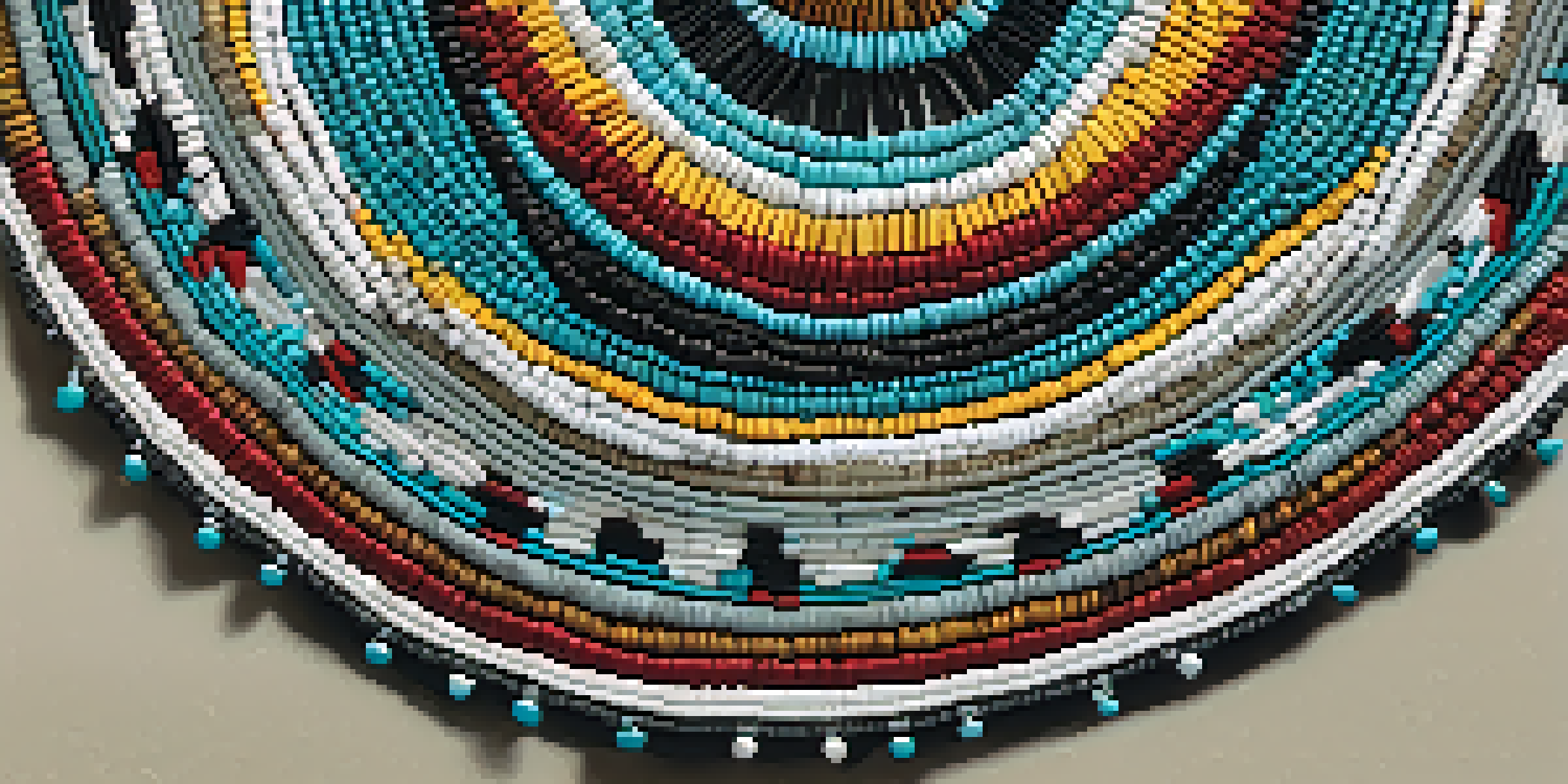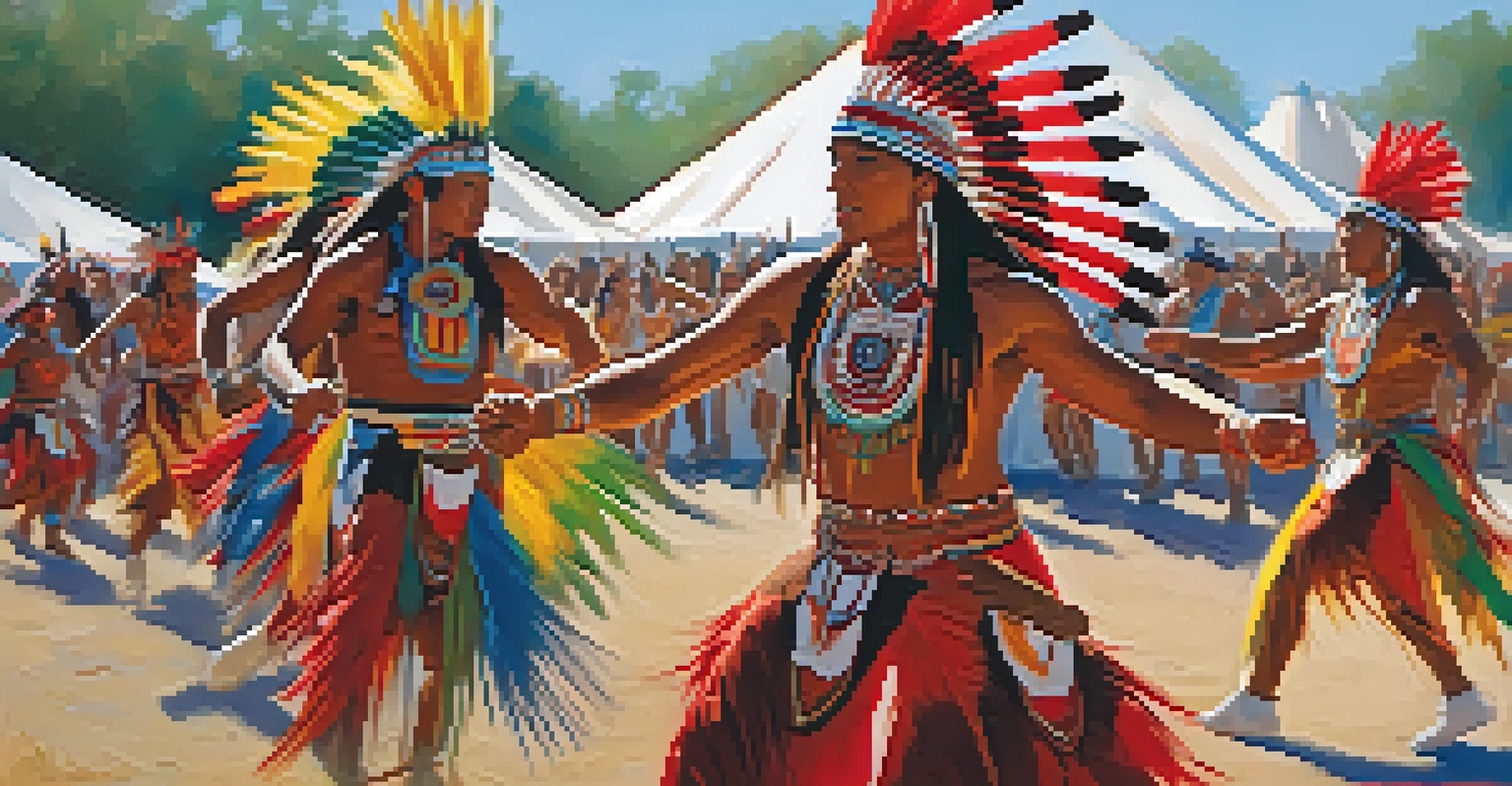The Role of Native American Tribes in Washington's History

Understanding the Rich Heritage of Native American Tribes
Native American tribes have a long and vibrant history in Washington State, predating European contact by thousands of years. Each tribe, with its unique culture, language, and traditions, contributed to the rich tapestry of the region. The diverse ecosystems of Washington provided various resources that supported complex societies, from the coastal Salish tribes to the inland tribes like the Nez Perce.
The land is sacred. It is the giver of life and the foundation of all culture, identity, and community.
These tribes were not just inhabitants; they were stewards of the land, developing sustainable practices that maintained the ecological balance. Their deep connection to nature influenced their social structures, spiritual beliefs, and governance systems. Understanding this heritage is crucial for appreciating the current cultural landscape of Washington.
Today, many of these tribes are actively working to preserve their languages and traditions, ensuring that future generations understand their historical significance. By recognizing their heritage, we can better appreciate the contributions these tribes have made to the state as a whole.
The Impact of European Colonization on Native Tribes
The arrival of European settlers in the 18th and 19th centuries dramatically altered the lives of Native American tribes in Washington. Colonization brought new technologies and trade opportunities but also led to conflict, displacement, and disease. The effects were profound, often devastating, as tribes struggled to maintain their way of life in the face of encroaching settlers.

Many tribes signed treaties with the U.S. government, which were intended to protect their rights and lands. Unfortunately, these treaties were frequently violated, leading to loss of territory and resources. This loss not only impacted the tribes' economies but also their cultural practices and community structures.
Heritage Shapes Cultural Identity
Native American tribes in Washington have a rich heritage that influences their culture, languages, and traditions, vital for preserving their identity.
Despite these challenges, tribes managed to adapt and resist assimilation. Their resilience is evident today as many tribes continue to fight for their rights, reclaim their lands, and revitalize their cultures, showcasing the enduring spirit of Native American communities.
The Role of Native American Tribes in Washington's Economy
Native American tribes have played a significant role in shaping Washington's economy, especially through activities such as fishing, logging, and tourism. Fishing rights, affirmed through treaties, have allowed tribes to maintain a vital economic lifeline while also preserving cultural practices. The fishing industry remains a cornerstone of tribal economies, contributing to both local and state markets.
We are all connected. To each other, to the earth, to the universe. We are all one.
Additionally, many tribes have diversified into gaming and hospitality, establishing casinos that provide jobs and revenue for their communities. These enterprises have not only bolstered tribal economies but have also allowed tribes to invest in education, healthcare, and infrastructure. This economic empowerment has revitalized many communities.
Furthermore, as more people seek authentic experiences, tribal cultural tourism has gained traction. Visitors are increasingly interested in learning about Native American history and traditions, which benefits both the tribes and the broader Washington economy. This highlights the importance of collaboration and mutual respect between tribes and the state.
Cultural Contributions of Native American Tribes
The cultural contributions of Native American tribes in Washington are vast and varied, influencing art, music, and storytelling. Traditional crafts, such as weaving and carving, showcase the skills and creativity of tribal artisans, often reflecting their connection to nature and spirituality. These art forms are not only beautiful but serve as a means of preserving history and identity.
Music and dance are also integral to tribal culture, with ceremonies and celebrations often featuring traditional songs and dances passed down through generations. These performances provide a sense of community and continuity, reinforcing cultural values and teachings. They invite non-Native audiences to learn and appreciate the depth of Native American heritage.
Economic Impact of Tribes
Tribes play a significant role in Washington's economy through fishing, gaming, and cultural tourism, which also strengthens community investments.
Moreover, storytelling plays a crucial role in transmitting tribal knowledge and wisdom. Oral traditions serve as a means to educate younger generations about their history, values, and the natural world. As these stories are shared, they foster understanding and respect, bridging cultural divides in the broader Washington community.
Native American Tribes and Environmental Stewardship
Native American tribes in Washington have long been recognized as guardians of the environment, with a deep-rooted understanding of sustainable practices. Their traditional ecological knowledge offers invaluable insights into managing natural resources effectively. This stewardship is evident in their efforts to restore habitats, protect endangered species, and advocate for environmentally friendly policies.
Tribes have played a key role in initiatives like salmon recovery, which is crucial for both ecological health and cultural significance. By collaborating with state and federal agencies, tribes work to restore river ecosystems that support salmon populations, which are central to their diet, economy, and cultural identity.
As climate change poses new challenges, the wisdom of Native American tribes becomes increasingly relevant. Their holistic approach to land management emphasizes the interconnectedness of all living things, reminding us of the importance of preserving our environment for future generations. This perspective fosters a sense of responsibility that resonates with the broader community.
Modern Challenges Facing Native American Tribes
Despite their resilience, Native American tribes in Washington continue to face modern challenges, including poverty, health disparities, and loss of language. Many tribal communities grapple with high unemployment rates and limited access to quality education and healthcare services. These socio-economic issues can hinder the progress of tribal members, impacting their quality of life.
Additionally, the loss of Indigenous languages is a pressing concern, as fewer young people are learning their ancestral tongues. Language is a vital component of cultural identity, and its decline threatens the transmission of traditional knowledge and practices. Efforts are underway to revitalize these languages through educational programs and community initiatives.
Modern Challenges Persist
Despite their resilience, Native American tribes face ongoing challenges such as poverty, health disparities, and language loss that threaten their cultural continuity.
Moreover, ongoing legal battles over land rights and sovereignty remain significant challenges for many tribes. These disputes often stem from unresolved treaty obligations and the struggle to maintain control over ancestral lands. Advocacy for tribal rights continues, as tribes seek recognition and restitution to ensure their voices are heard in contemporary society.
The Future of Native American Tribes in Washington
The future of Native American tribes in Washington is one of hope and resilience, marked by a strong desire for cultural revitalization and community empowerment. Many tribes are investing in education and technology, aiming to equip their members with the skills needed for the modern economy. This focus on education is crucial for preserving cultural identity while navigating contemporary challenges.
Furthermore, as environmental issues become more pressing, tribes are increasingly positioned as leaders in sustainability efforts. Their traditional ecological knowledge, combined with modern science, can guide effective solutions to climate change and conservation. Collaborating with various stakeholders, tribes are advocating for policies that reflect their values and protect the land for future generations.

In conclusion, the ongoing efforts of Native American tribes to reclaim their narrative, preserve their culture, and assert their rights are shaping a promising future. As they continue to navigate the complexities of modern society, the resilience and strength of these tribes will undoubtedly play a vital role in Washington's ongoing story.